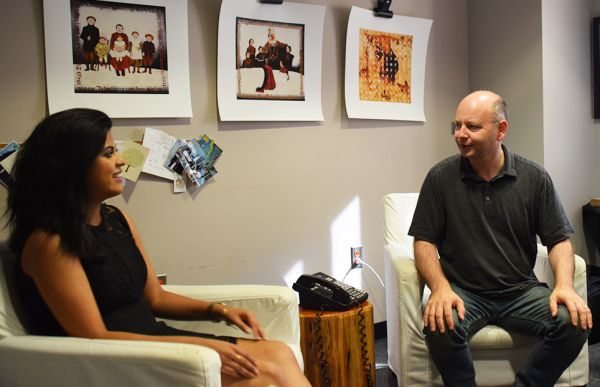Hate Speech is not Freedom of Speech
Rini Sampath is the last person any smart individual would choose to insult. She is intelligent, bright eyed, strong – an independent individual with a highly centered sense of her own identity. It is little wonder she was elected president of USC’s undergraduate student government. Yet verbal abuse, as well as a drink, was hurled at her, all in front of her friends and members of the fraternity where the incident took place.
Thankfully, the still unidentified fraternity took swift action to suspend and evict the still anonymous perpetrator. Sampath herself has lodged a complaint to USC, which is being handled through its bias procedure. I am pleased to learn that Dean of Religious Life Varun Soni has indicated such racist actions can lead to suspension or expulsion. An individual who holds such a view does not deserve to be a part of an inclusive and respectful community.
But this incident throws into sharp relief the problem we have with hate-based verbal abuse. The fact that the perpetrator threw a physical object may make it much easier to punish, because speech, including hateful speech is largely protected. Verbal abuse is however an acute form of violence. Notwithstanding the fact that the brain and the mouth of the perpetrator assault the ears and the mind of the victim (all a part of the physiology), it is also a form of emotional violence (he attacked her identity), mental violence (he assaulted her state of mind), and social violence (he carried out his crime in front of her peers assuming he had the support of his own peers). Speech is far from being physically inert.
We have ample historical evidence that hateful words can be as dangerous as physical violence itself. German poet, Heinrich Heine said in 1821, “He who burns books will soon burn people,” which at the time must have sounded absurd. Yet just 100 years later, the Nazis burned Jewish books, then, in short order, Jewish people. If we allow hate speech to exist with impunity we will rue the day.
I am originally from Europe, a place where we experienced the worst consequences of hateful speech. The Jews of Europe would not have been murdered but for daily Nazi propaganda. As a scholar of genocide, I have observed professionally how hate speech is fundamental for the mass killing of human beings the world over. On a personal note, my grandfather was from India, and so my first introduction to racial violence was my own mother's fear of the hate speech of the National Front in the UK. Today, I observe the onslaught on Jewish students in campuses across the country whose identity is assaulted by a barrage of anti-Semitic hatred, cloaked in the cause of misled social justice. These are not just words. I know deep down that “You Indian piece of sh**” is a violence so strong, it can ultimately kill.

I spent today interviewing 90-year-old Holocaust survivor Anita Lasker Wallfisch for USC Shoah Foundation's New Dimensions in Testimony, interactive interview program. As a German Jew, she was a self assured young woman, who reminds me very much of Rini Sampath. Her approach in 1936 was “If you call me vermin, you must be vermin.” That was courageous, but she was still in mortal danger, because the environment she was in did not protect her. To protect our community, sanctions must be strong, leadership outspoken and impunity must never prevail.
Anita, who is a survivor of Auschwitz, made very clear to me that because a whole society thinks its laws are right, does not make it in the best interest of its people. As much as I love our U.S. Constitution, protecting hateful speech is an inherent danger to our society. The vilification of Indians, blacks, Jews, gays, the list is long one, happens every day in our society and puts us at risk while it is protected. Allow the ideas to exist in speech and they will ultimately be carried out. Martin Niemoeller warned us of the need to speak on behalf of others when he said, “First they came for the communists and I did not speak because I was not a communist. Then they came for the trade unionists and I did not speak out because I was not a trade unionist. Then they came for the Jews and I did not speak out because I was not a Jew. And then they came for me, and there was no one left speak for me.”
Verbal abuse is a form of violence and should be treated as such. Hatred, however it is expressed, ultimately kills. Those who resist it, speak out against it and expel it, have always proven to be right. “You Indian piece of sh**” should not be protected speech – not at USC, not in our country, not in our world.